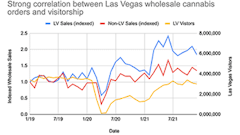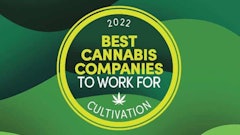More than 4.5 million U.S. employees (a number greater than the population of Los Angeles) quit their jobs in November 2021, the highest quit rate of four previous months, which each saw quit rates of more than 4 million, according to the U.S. Bureau of Labor Statistics. And the labor shortage expands far beyond the U.S.; not only is it the No. 1 external threat to U.S. CEOs’ businesses, but it is one of the top three challenges for the world’s CEOs (ranking third behind rising inflation (2nd) and COVID-19 disruptions (1st)), according to The Conference Board’s “C-Suite Outlook 2022: Reset and Reimagine” report.
Amidst the ongoing pandemic, employees are prioritizing happiness and job satisfaction, among other work-life balance factors, more than ever. As a September 2021 article in McKinsey Quarterly explained, “If the past 18 months have taught us anything, it’s that employees crave investment in the human aspects of work. … They want a renewed and revised sense of purpose in their work. … They want to feel a sense of shared identity. Yes, they want pay, benefits, and perks, but more than that they want to feel valued by their organizations and managers.”
This concept can be seen in this year’s Best Cannabis Companies to Work For – Cultivation benchmarking data, where employees feeling valued and proud to work at their companies were bigger factors in making an organization a Best Company to Work For than how satisfied the employees are with some company benefits, such as employer-paid healthcare.
Feeling valued by an employer and company pride are factors that contribute to overall “employee engagement,” and employees at Best Companies had an average overall engagement level of 92%, compared to an average of 81% at non-ranking companies.
Engaged employees impact their companies in various ways. “Engagement is linked to greater productivity, retention, and sales – even safety,” reported global analytics and advice firm Gallup.
This year’s Best Companies employee benchmarking data supports this as well.
Regarding retention, in this year’s research, an average of 89% of ranking companies’ employees said they plan to continue to work for their current company for at least two more years, compared with 83% of non-ranking companies. Minimizing turnover can also reduce hiring costs, often significantly. In 2022, “the average cost per hire is $4,425,” according to career-planning company Zippia, and “it takes 36 to 42 days to fill an average position in the United States.” That total cost increases as employees’ salaries and various company benefits are factored in. “It costs up to 40% of an employee’s base salary to hire a new employee with benefits,” Zippia reports.
Regarding sales (in addition to happy employees being widely reported as providing better customer service than unhappy employees), an average of 95% of employees at Best Companies said they would recommend their organization’s products/services to a friend, compared to an average of 83% at non-ranking companies. In cannabis, with often limited marketing options, word of mouth and employee recommendations can be crucial.
And regarding productivity, an average of 92% of employees at Best Companies said that most days, they feel they have made progress at work, compared to an average of 86% at non-ranking companies.
So creating a positive work culture that truly engages employees isn’t just good for those employees, it’s good for the company in many ways, including the bottom line.

























